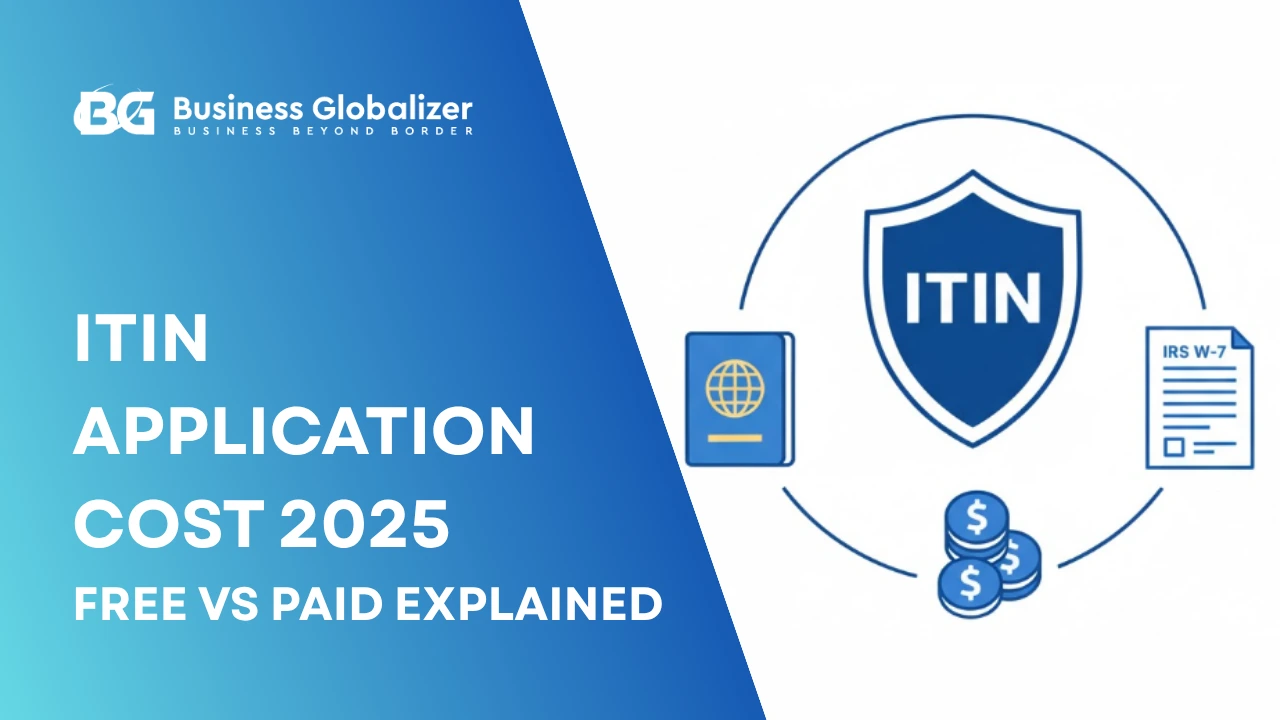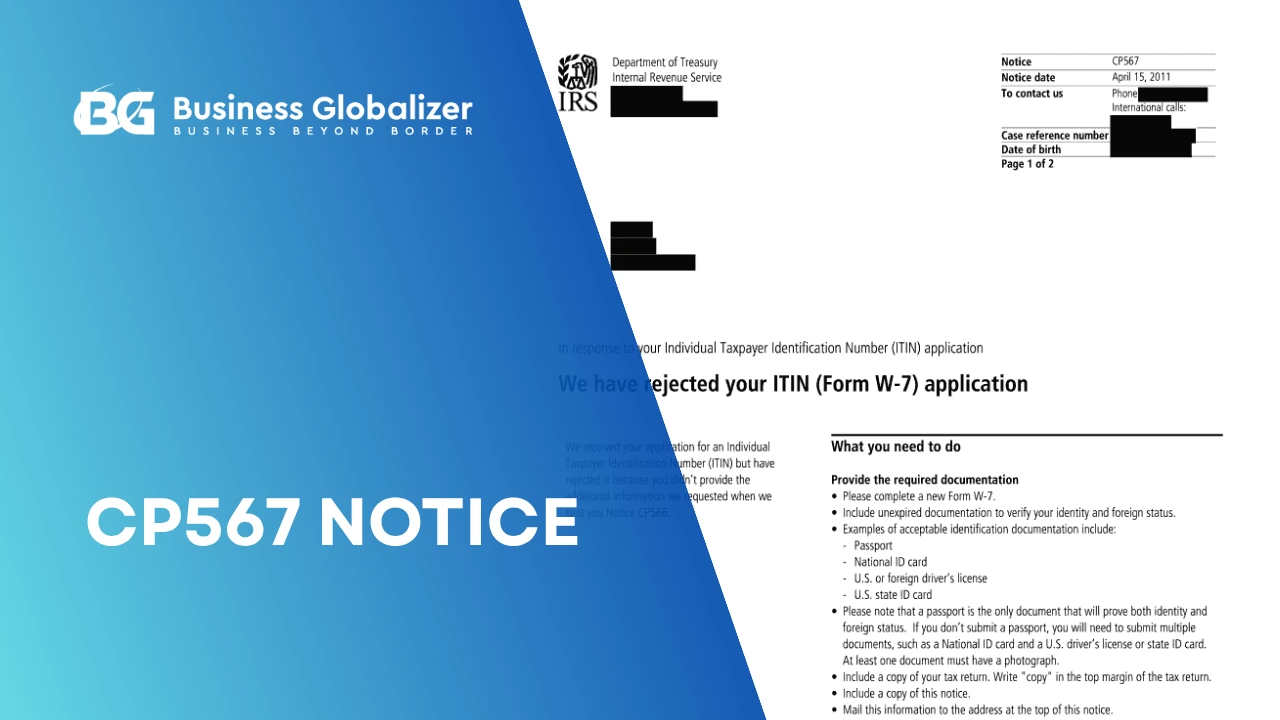If you’re a foreign investor planning to buy or sell real estate in the U.S., there’s one thing you’ll need before you even think about wiring money: a valid ITIN.
It’s not just another tax formality. Without it, you can’t properly file returns, claim refunds, or even process certain real estate transactions. And when large property deals are involved, the IRS takes documentation seriously.
So, in this guide, let’s break down everything you need to know; from why ITIN matters for foreign property buyers and sellers, to how FIRPTA tax withholding works, and the practical steps to get things done right.
What Is ITIN and Why It Matters in U.S. Property Deals
Think of an ITIN as your personal tax ID in the U.S. A number the IRS gives to people who don’t qualify for a Social Security Number but still need to pay or report taxes.
If you’re a foreign buyer or seller of U.S. property, this little number is your tax fingerprint. It tells the IRS who you are when you earn rental income, sell a property, or claim a tax refund. Without it, most real estate transactions simply can’t be completed properly.
Here’s where you’ll need it:
- To file a U.S. tax return after selling property or earning rental income.
- To claim refunds on FIRPTA (Foreign Investment in Real Property Tax Act) withholdings.
- To report rental income or property-related earnings if you own U.S. real estate.
- To complete title transfers and meet settlement or closing requirements.
So, whether you’re looking up “how to buy a house with an ITIN number?” or planning to sell one, remember, an ITIN isn’t just paperwork. It’s what keeps your U.S. real estate activity legal, traceable, and refund-eligible.

Understanding FIRPTA and Why It Requires an ITIN
When a foreign investor sells real estate in the U.S., there’s one rule that quietly steps in: FIRPTA, short for the Foreign Investment in Real Property Tax Act. It’s the IRS’s way of making sure nonresidents pay the proper taxes on any profit they earn from selling U.S. property. In short, if you’re a foreign seller, FIRPTA is what brings your ITIN into the picture.
Take a look below:
- The buyer (or their agent) must hold back 15% of the total sale price and send it to the IRS.
- That money isn’t gone, it’s like a security deposit until the seller files a U.S. tax return to report the sale and claim any refund they’re owed.
And this is where your ITIN number becomes important. Without an ITIN, the IRS can’t confirm who you are, process your return, or release your withheld funds.
Sometimes even the buyer needs an ITIN, especially when filing Form 8288 or 8288-A, the paperwork that shows FIRPTA withholding was done correctly.
So whether you’re asking “Can I buy a house with an ITIN?” or you’re getting ready to sell one, having an ITIN is what keeps your deal legal, trackable, and IRS-approved. No confusion, no delays, no stuck refunds.
When Foreign Buyers Need an ITIN
If you’re a foreign buyer of U.S. property, getting an ITIN isn’t just a box to tick, it’s part of proving you’re a legitimate taxpayer in the U.S. system.
You’ll need an ITIN for property purchases when:
- You earn rental income from your U.S. property and need to report it to the IRS.
- You want to claim tax treaty benefits that lower or eliminate withholding taxes.
- You plan to file an annual federal return to stay compliant with U.S. tax laws.
- You expect to sell the property later and claim a refund under FIRPTA withholding.
Buying a house in the U.S. with an ITIN number also makes life easier when setting up property management agreements, utilities, or even mortgage-related paperwork; many institutions require a valid taxpayer ID.
Pro Tip: If you’re asking, “Can I get an ITIN before closing on a U.S. property sale?” Absolutely. In fact, applying early ensures your transaction and tax filings move without unnecessary holdups.
When Foreign Sellers Need an ITIN
If you’re a foreign property owner selling real estate in the U.S., getting an ITIN isn’t optional, it’s the key to accessing your money after the sale.
You’ll need an ITIN for selling property in the U.S. when you want to:
- File a U.S. tax return (Form 1040-NR) to officially report the sale.
- Claim a refund or reduction on FIRPTA withholding (the 15% tax withheld from your sale price).
- Report any rental income or capital gains tied to your property.
Without an ITIN, your transaction might close. But your withheld funds will stay parked with the IRS until your ITIN and return are properly filed.
So if you’re preparing to sell, make sure your ITIN number for U.S. property is ready in advance. It’s what keeps your sale compliant, your paperwork clean, and your refund on its way instead of stuck in the system.

How to Apply for an ITIN as a Foreign Property Buyer or Seller
Applying for an ITIN for U.S. property transactions isn’t complicated. But accuracy matters. A small error can delay your deal or refund by weeks. Here’s how to do it right:
- Complete Form W-7
Start with IRS Form W-7, the official ITIN application form.
Choose the correct reason for applying:
- Box “a” – if you’re filing a U.S. tax return (for example, reporting a property sale or rental income).
- Box “h” – if you’re claiming a refund of FIRPTA withholding after selling property.
- Gather and Attach Supporting Documents
You’ll need:
- A certified copy of your passport (or another valid ID).
- Proof of ownership or sale, like a purchase contract, settlement statement, or Form 8288-A.
- A U.S. tax return or withholding document that supports your reason for applying.
- Apply Through a Certified Acceptance Agent (CAA)
Instead of mailing your passport to the IRS, which risks delays or loss, apply through a CAA. They verify your identity locally and send your ITIN application directly to the IRS. It’s faster, safer, and far more convenient.
- Wait for IRS Processing
Once submitted, the ITIN processing time is usually 7–11 weeks, though it can stretch longer during busy tax periods or if you’re applying from abroad.
Phew. Simple, right? Now, whether you’re trying to buy a home using your ITIN or claim back the tax withheld under FIRPTA, these steps make sure your application is accurate, traceable, and cleared by the IRS without a hitch.
Common Mistakes to Avoid When Applying for an ITIN
Even the tiniest mistake, which may seem harmless or silly, on your ITIN application for a U.S. property deal can delay your refund or send you into endless back-and-forth with the IRS. Let’s learn the most common slip-ups, and how to steer clear of them.
Applying after the property sale closes.
Many foreign sellers wait until after closing to apply for their ITIN, but that delays their FIRPTA refund by months. Always apply before or during the transaction.
Mailing your original passport.
Never send your passport directly to the IRS. Instead, use a Certified Acceptance Agent (CAA) to verify your identity safely and speed up processing.
Leaving out key tax documents.
Forgetting to attach Form 8288-A or proof of withholding means the IRS can’t process your refund or verify the sale.
Choosing the wrong reason code on Form W-7.
Selecting the incorrect reason (like the wrong box between “a” and “h”) can lead to immediate rejection.
In short, a bit of preparation, and the right help, can make your ITIN for foreign property application smooth, fast, and stress-free.
Business Globalizer: IRS-Authorized Help for ITIN Applicants
Let’s be honest: applying for an ITIN for foreign property isn’t always straightforward. Between FIRPTA rules, withholding forms, and international tax documents, things can get confusing fast.
That’s where Business Globalizer comes in. As the first IRS-authorized Certified Acceptance Agent (CAA) in Bangladesh, we make the entire process simple and secure for foreign buyers and sellers of U.S. property.
- We verify your passport locally, no need to mail it overseas.
- We prepare and file your ITIN application directly with the IRS.
- We assist with property purchases, FIRPTA refunds, and rental income filings.
In simple words, you focus on your investment only. We handle the paperwork and ensure your ITIN is approved the right way.
Closing Thoughts
When it comes to U.S. property, your ITIN number isn’t just a tax formality, it’s your key to compliance and smooth transactions. Without it, you risk delayed refunds, frozen FIRPTA funds, and missed tax benefits.
So, whether you’re planning to buy a house with an ITIN number or preparing to sell one, get your application right from the start. And if you’d rather not wrestle with paperwork, Business Globalizer’s IRS-approved CAA service ensures your process is quick, correct, and compliant. Every single time.
Because in U.S. real estate, time really is money, and compliance keeps both safely in your hands.

FAQs of Foreign Buyer and Seller of U.S. Property Guidance for ITIN
Can I buy a house in the U.S. with an ITIN number?
Answer: Yes. Many lenders and property sellers accept ITINs for identification and tax purposes. It’s often used by foreign nationals without a Social Security Number.
Can I get an ITIN before closing on a U.S. property sale?
Answer: Absolutely. In fact, it’s recommended: having your ITIN ready ensures smoother transactions and avoids withholding complications under FIRPTA.
What happens if I sell U.S. property without an ITIN?
Answer: The IRS will still withhold the FIRPTA tax (usually 15%), but you won’t be able to file for a refund or adjustment until you obtain your ITIN.
How long does it take to get an ITIN for property purposes?
Answer: Well, usually it takes 7–11 weeks to get an ITIN. Depending on IRS workload (tax season and other factors) and the accuracy of your documents.
Can I buy property in the U.S. without a Social Security Number?
Answer: Yes, using an ITIN. It works as your tax ID for compliance and is accepted in most real estate transactions involving nonresidents.
What are the FIRPTA tax rules for foreign sellers?
Answer: If you’re a foreign seller, FIRPTA requires 15% of your sale amount to be withheld for taxes. Now, don’t worry, it’s not gone for good. When you file your U.S. tax return with an ITIN, you can claim back any extra that was withheld.
Is an ITIN valid for future property transactions?
Answer: Yes. Once you have an ITIN, you can keep using it for future property deals unless it becomes inactive. And even then, you can easily renew it through a Certified Acceptance Agent whenever you need it again.






